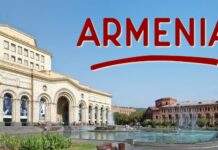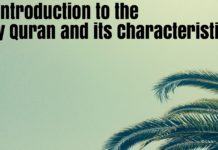Ideology of Pakistan (The Two Nation Theory)
IDEOLOGY OF PAKISTAN
Ideology of Pakistan:- The ideology of a state comprehends the aspirations of its people, the nature of the state, the form of Government and above all the ideals set as goals. The Ideology of Pakistan took shape through a process of evolution. It started with the realization of the Muslims of South Asia. They are quite different from the Hindus and their future in a “democratic India” dominated by Hindu majority was not safe. They first demanded separate electorates (1906) and later separate states/ state (1940/46). The process culminated in the form of Objectives Resolution (1949). Historical experience of the Muslims of South Asia provided the basis; Allama Muhammad Iqbal gave it a philosophical exposition; Quaid-i-Azam Muhammad Ali Jinnah translated it into a political reality; and the Constituent Assembly of Pakistan gave it legal sanction. In a nut shell the Ideology of Pakistan is that:
- The Muslims of South Asia are a nation in the modern sense of the word;
- The basis of their nationhood is neither territorial, nor racial, linguistic or ethnic;
- They are a nation because they profess the same faith -Islam;
- Wherein they should be enabled to order their lives in individual and collective spheres in accord with the teachings and requirements of Islam as set out in Holy Quran and Sunna ;
- They are areas where they are in dominant majority should be constituted into sovereign states/state;
- They are a nation because they profess the same faith -Islam;
- The state should endeavour to strengthen the bonds of unity among Muslim countries.
The Ideology of Pakistan stems from the instinct of the Muslim Community of South Asia to maintain its individuality by resisting all attempts to absorb it by the Hindu society. They believe that Islam is incompatible with Hinduism. Historical experience has shown that Islam and Hinduism have two different social orders and given birth to two distinct cultures. There is no meeting point between the two.
Although the Muslim Community of South Asia is heterogeneous in nature. And the Muslims belong to different races, speak different languages and even in matters of religion are divided into different sects. Yet the bond of common faith has kept them together. One of its characteristics has been that
“DESPITE INTERNAL TENSIONS, IT HAS BEEN THE TRADITION FOR MUSLIMS OF VARIOUS SECTS IN THE SUBCONTINENT TO UNITE AGAINST COMMON DANGER AND THIS HAS DEVELOPED A SENSE OF LOYALTY TO THE COMMUNITY AMONG ITS VARIOUS SECTS.”
Whenever in trouble they have always turned towards Islam for rescue and met with success ; and if ever they tried to identify themselves on some other basis they suffered. It is Islam, which is supra-national, that has welded the different sections of the Muslims into. A single community. Their adversaries, the Hindus, have also always considered them one entity and during the riots, while killing them, made no discrimination on the basis of their race, language or sect.
In early eleventh century Al-Biruni observed:
“IN ALL MATTERS AND USAGES THEY (HINDUS) DIFFER FROM US (MUSLIM).”
He wrote:
: “THEY TOTALLY DIFFER FROM US IN RELIGION, AS WE BELIEVE IN NOTHING IN WHICH THEY BELIEVE AND VICE VERSA.”
According to him
“THE HINDUS CONSIDERED THE MUSLIM MLACHHA I.E., IMPURE AND FORBID HAVING ANY CONNECTION WITH THEM, BE IT INTERMARRIAGE ANY OTHER BOND OF RELATIONSHIP, OR BY SITTING, EATING AND DRINKING WITH THEM, BECAUSE THEREBY, THEY THINK THEY BE POLLUTED.”
Expressing his views on Hindu
Muslim relations in the twentieth century Quaid-i-Azam Muhammad Ali Jinnah observed:
: “THE HINDUS AND MUSLIMS BELONG TO TWO DIFFERENT RELIGIOUS PHILOSOPHIES, SOCIAL CUSTOMS AND LITERATURE. THEY NEITHER INTERMARRY, NOR INTER-DINE TOGETHER, AND INDEED THEY BELONG TO TWO DIFFERENT CIVILIZATIONS WHICH ARE BASED ON CONFLICTING IDEAS AND CONCEPTIONS. THEIR ASPECTS ON LIFE AND OF LIFE ARE DIFFERENT.”
In spite of the passage of about one thousand years there is a remarkable similarity between the two observations. It shows that in spite of Akbar’s conscious efforts to bring the two communities closer. And British attempt to secularize the Indian society no change has taken place in Hindu – Muslim relations since Al-Biruni wrote his Indica. Rather religious and cultural differences were further aggravated by political rivalry under the British rule.
Since Jaipal’s invasion of the Muslim state of Ghazni (1001 A.D.), there have been a long series of wars between the Muslims and Hindus for the political domination of the subcontinent. The Hindus never spared any chance which could harm the Muslims. Revolts of the Hindus against the Muslim rulers run in thousands. When the British came the Hindus immediately joined hands with them and helped them to remove the Muslims from power. There is a long chain of alliances and conspiracies between the Hindus and the British against the Muslims starting with Clive-Jagat Seth cooperation to the friendship between Mountbatten’s and Nehru. The Muslims of South Asia have always found the Hindus on the other side of the fence. In the words of Quaid-i-Azam
“IT IS QUITE CLEAR THAT HINDUS AND MUSALMANS DERIVE THEIR INSPIRATION FROM DIFFERENT SOURCES OF HISTORY. THEY HAVE DIFFERENT EPICS, THEIR HEROES ARE DIFFERENT AND THEY HAVE DIFFERENT-EPISODES. VERY OFTEN THE HERO OF ONE IS A FOE OF THE OTHER, AND LIKEWISE, THEIR VICTORIES AND DEFEATS OVERLAP
The attempts to bring the two communities close could not succeed. Because the differences between the two are fundamental and have no meeting point. At the root of the problem lies the difference between the two religions. So long as the two people want to lead their lives according to their respective faiths they cannot be one. In the 15th century an attempt was made to synthesis the two people. Bhagti movement was an attempt “to bring about Hindu Muslim Unity by uniting them on the spiritual plane.”?
It presented Ram and Rahim as one and advocated that
“HINDUISM AND ISLAM COULD UNITE IN A FERVENT BELIEF IN GOD AND THE DIVISION ON THE BASIS OF RITUAL OR THEOLOGY WERE NOT IMPORTANT.”
There grew ‘an atmosphere where greater importance was attached to spiritual values of religion than the ritual and communal sense which were alike at a discount; there were many minds which began to think that the external aspect of religion had no significance; outward conformity began to slacken; for many this set a fashion, laxity increased; it seemed that the very hold of Islam was growing weak.
With the abolition of distinction between Islam and Hinduism the Muslims started losing pride in their faith. It was feared that if this pride was gone the Muslims had no other loyalty to keep them from absorption into Hinduism. Bhagti movement, indeed, was Hinduism working in its “subtle and sophisticated manner.”
The situation became dangerous when this philosophy got political support from the court during the rule of Akbar. When the Muslims realized the gravity of the problem they reacted with vigor. The lead was given by Shaikh Ahmad Sarhandi. Akbar did not ask the Muslims to abjure Islam. Akbar was willing to retain of Islam in the composition of his religious convictions was merely a parody of it ; and this was the most dangerous aspect of the situation. It is not easy to seduce people from their allegiance to their faith, but if their faith is so diluted with other religions that it loses its character, then it is sure to die out in course of time.”
It goes to the credit of the Shaikh that he met that challenge successfully and reintroduced the Islamic values, rituals and institutions. The change which started during the rule of Jahangir became visible during the reign of Shah Jahan and reached its climax in the days of Aurangzeb. The final battle took place between Akbar’s “liberalism” and “Islamic purity” in the form of war of succession between the sons of Shah Jahan. The war between Dara and Aurangzeb was not a battle between two individuals fighting for political ascendency alone. It was a conflict between two philosophies, the success of Aurangzeb was the victory of Islam. As it was practiced before the Bhagti movement. The Muslims succeeded in maintaining their separate identity. They frustrated the attempt of the Hindus to absorb them in the Hindi, society under the guise of “spiritualism”.
The failure of Bhagti movement to achieve its objective and rejection of Akbar’s “liberalism” by the Muslim community did not dishearten the Hindus. In the eighteenth century, an attempt was made to establish Hindu supremacy. The rise of Marhatas, in fact, was the rise of Hindu militant nationalism. They posed a grave threat to the very existence of the Muslim community of South Asia. After getting supremacy in the South, the Marhatas came to the North with the purpose of establishing Hindu Pad Padshahi.
They secured friendship of the Jats and embarked upon to destroy the Muslim political power as a first step towards their ultimate goal i.e. establishment of Ram Raj and absorption of the Muslims in Hindu Society. Realizing the gravity of the situation Shah Wali:Allah decided to invite Ahmad Shah Abdali, who had recently established his rule in Afghanistan. He wrote a letter to Abdali, apprised him of the political conditions of South Asia and requested him “to help the Muslims in regaining their freedom from the domination of their enemies. “12 He exhorted Ahmad Shah Abdali “to come to the rescue of the Muslims because it was his duty to do so as the most powerful Muslim monarch of the region.”
The Battle of Paniput (1761) is a landmark in the history of the Muslims of South Asia. It broke their fate and put an the back bone of Marhatas power and sealed their late. This put end to the dream of the establishment of Ram Raj and saved +7 Muslim community from complete annihilation. It provided the Muslim rulers an opportunity to revitalize their political power. But they failed due to their incompetence and lethargy. Decline of the Muslim power and defeat of the Marhatas created political vacuum, which was ultimately filled in by the British.
The Hindus cooperated with the British and helped them in grabbing political power in South Asia. The Hindu aristocrat in Bengal and Marhatas in the South facilitated the British in achieving their goal. Sirjud-Daulah. Hvder Ali and Tipu Sultan made unsuccessful attempts to stop the rising tide of British imperialism. In 1857 the Muslims took lead and played a major role in the last attempt made to stop the British domination. After their victory the British let loose a reign of terror and suppression on the Muslims. But the defeat of the Muslim rulers did not subjugate the spirit of freedom of the Muslim community. The lead was given by the Ulama.
The heroic struggle of the Mujahedeen is a neglected but golden chapter in the history of the Muslims of South Asia. While the Mujahedeen were struggling to save the Muslim community by force. Sir Syed Ahmad Khan adopted a new strategy. He realized that-it was no more possible for the Muslims to recapture power by force. Than he came to the conclusion that the British had come to stay and there was no possibility of their ouster in the near future. Further, he made attempts to bridge the differences between the British and the Muslims.
He took practical steps to revitalize the Muslims and brought them out of the depression in which they had plunged after the loss of the political power. And asked them to remain away from politics and use all their energies to social reforms, particularly education. When the India National Congress was founded (1885) he asked the Muslims, remain aloof. To provide an alternate forum to the Muslims founded Muhammedan Educational Conference (1886), Wendy remained their main organization till the establishment of India Muslim League (1906).
The British brought with them a new political philosophy, commonly known as “territorial nationalism: Before the coming of the British there was no concept of “Nation” in South Asia. The region, which was never a single political unit, was inhabited by different communities. These communities were identified either by their religion or race or caste. The word “Qaum” which has been invariably used as an equivalent of “Nation” was used to differentiate one community from the other. The British concept of “Nation” did not fit in the religious social order of South Asia. But the British wanted and tried to weld the different communities living in South Asia into a “Nation”.
Similarly, the political system, which the British had acquired from their experience in Britain, did not suit the political culture of South Asia the British, political system, commonly known as “Democracy” gave majority the right to rule. Unlike in Britain the basis of majority and minority in South Asia was not political but religious and ethnic.
The attempt to implement the British model in South Asia instead of solving the political problem further complicated it. While it got the support of the Hindus, the Muslims vehemently opposed it. The logical conclusion of the implementation of the new order would have been the end of the separate identity of the Muslims and perpetual rule of Hindu majority in the name of “nationalism” and “democracy”. No wonder the Muslims refused to go the British way. They claimed that they were a separate nation and the basis of their nationhood was common religion-Islam. And they refused to accept a political system which would reduce them to a permanent minority. They first demanded separate electorates and later a separate state.
The Charter Act of 1853
Under the Charter Act of 1853 the British Established Legislative Councils in India. They constituted of “officials” only. The Act of 1861 provided for the association of nominated “non: officials”. It was in 1861 that a provision was made for “elective element” in the councils. Under the Act members to the Imperial Legislative Council were to be selected by a Provincial Legislative Councils, while organizations Chamber of Commerce Corporation, Senate of the University etc. became electoral college for Provincial Legislative Council Since most of these organizations were dominated by the Hindus they were able to occupy almost all the seats in the Legislative Councils. The Muslims did not feel very happy about the system and decided to secure such a modification of the existing rules of elections as would give them reasonable representation in the Councils.
In 1896 Syed Mahmud proposed a scheme in which he stated that the Muslims were a community with separate tradition, interests, political convictions and religion and should as such, get representation on local bodies and Imperial and Provincial Councils by means of separate electorates.”
In July 1906, John Morley, the Secretary of State for India announced in the House of Commons that the Government was about to appoint a committee to consider the extension of representative element in the legislative councils. The Muslims, who were not satisfied with the working of the Act of 1892 and were keen on securing a place for themselves in the political life, realized the necessity of placing before the Government their point of view regarding the constitution of the Councils. On the initiative of Mahdi Ali, commonly known as Nawab Mohsin-ul-Mulk, it was decided to place the Muslim point of view before the Government through a representative deputation. A Memorandum was drafted by Nawab Imad-ulMulk Syed Hussain Bilgarami
A representative meeting presided over by Sir Abdur Rahim finally approved the draft. His Highness Sultan Mohammad Shah, Agha Khan III was nominated the leader of the Deputation consisting of thirty-five prominent Muslims from all parts of the subcontinent. Op October 1, 1906 the Deputation, commonly known as Simba Deputation, waited upon Lord Minto, the Viceroy, at Simla. The Agha Khan read the Address which inter alia stated that “from the national point of view we Muslims form a separate body which is quite distinct from the Hindus.”
The Deputation demanded that:
“THE ELECTORAL SYSTEM FOR THE ELECTIVE BODIES SHOULD BE SUCH AS TO PROVIDE FOR THE RIGHT OF THE MUSLIMS TO ELECT THEIR OW! REPRESENTATIVES FROM SPECIAL CONSTITUENCIES.”
The Muslims succeeded in getting their demand. The Indian Councils Act of 1919 provided for separate electorates for the Muslims. However, they could also take part in elections for general seats. The grant of separate electorates to the Muslims established legally and constitutionally the status of the Muslim community in the subcontinent as a distinct entity. It was the first major victory for the Muslims; a mile stone on their journey to nationhood and beginning of a constitutional struggle which led to the creation of Pakistan.” The foundation of the All India Muslim League, on December 30, 1906 was the manifestation of the will of the Muslims of the subcontinent that they were ready “to protect and advance” their “political rights and interests.”
If you want to learn How to earn from Online platforms click on this,Fixtopay.com.


























